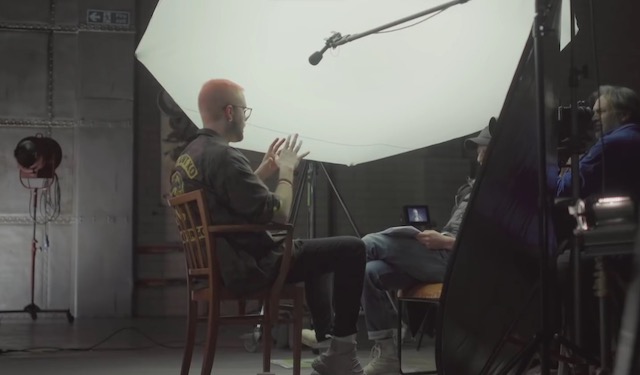
A few days ago, Chris Wylie blew the whistle on Cambridge Analytica, his former employer—a company designed to use private information acquired through Facebook to influence the culture war.
Wylie, who was working on his fashion degree before being recruited to help start Cambridge Analytica, came forward recently on the role the company played in gathering information on the public through social media to sway the political landscape of the country. The C.E.O. of Cambridge Analytica, Alexander Nix, has since denied all allegations, and Facebook has denied any data breach.
“It was a grossly unethical experiment,” says Wylie in an interview with The Guardian, who first broke the story. “You are playing with the psychology of an entire country without their consent or awareness, and not only are you playing with the psychology of an entire country but you are doing so in the context of the democratic process.”
Scary stuff.
The claim is that Cambridge Analytica used Facebook to illegally spy on Americans, and possibly did so in a way that influenced voters through targeted ad campaigns to help determine the election. The company was owned by Robert Mercer at the time all of this was allegedly taking place, and was headed by the beloved Steve Bannon, both of whom have close ties with Donald Trump’s candidacy and presidency.
“The reason why he (Steve Bannon) was interested in this is because he believes in this idea of the ‘Breitbart Doctrine,’ which is that if you want to change politics you first have to change culture because politics flows from culture. If you want to change culture, you have to first understand what the units of culture are, and the people are the units of culture. So, if you want to change politics, you first have to change people to change culture.”
The idea is that more can be learned about our personality from what we do on the internet than even what our friends might say about us. The aim of Cambridge Analytica, according to Wylie, was to build a “psychological profile” based on our choices online, and create a database from that information to be used as a political weapon. A bona fide mind hack of the collective consciousness of a nation to promote a political agenda.
This is not particularly new, as think tanks have been using marketing tactics to play off of human emotion in order to influence the minds of the public in their favor for most of the 20th century. What is new with Cambridge Analytica is the harvesting of personal information through Facebook, which allegedly occurred through its mobile app. When people installed the app, data could be pulled from their private profile, including private messages.
This is an assault on personal freedom that maybe was the natural consequence of the platforms so many of us have poured our lives into. Cambridge Analytica was allegedly taking advantage of private information that was either unknowingly given or outright stolen, to use us as pawns on a grand political chessboard.
This would be a breach of information and an attack on our civil liberties, if the allegations prove true. This can’t possibly be overemphasized, and the implications could be dire.
So, people who probably don’t have our best interests at heart are constantly attempting to sway us into buying into a political ideology by way of our social media profiles, whether left, right, or center, and the only way to protect ourselves from this kind of influence is to cultivate our own ideas from a number of different sources while always being willing to question our own assumptions. Don’t assume what you read is true. Don’t be absorbed by one narrative. Play with all of the possibilities, and for god’s sake, don’t get stuck in one place.
We can fight back.
“Instead of standing in the public square and saying what you think, and then letting people come and listen to you and have that shared experience as to what your narrative is, you are whispering into the ear of each and every voter. We risk fragmenting society in a way where we don’t have anymore share experiences and we don’t have anymore understanding. If we don’t have anymore shared understanding, how can we be a functioning society?” ~ Chris Wylie
Cambridge Analytica brings to light a deeper issue in our culture, which is the political divide in the West and its roots in social media. Even if our information isn’t being directly hacked, we are still being influenced by our own social media bubbles. If we stay in our bubble, confined to our narrative and political doctrine, we don’t know what people are saying on the other side, and we certainly can’t have any solidarity with them. Maybe we’re missing reasonable arguments, and we may find we share common interests, but that can’t be known if we remain in our respective bubbles and never listen to what people who seem to disagree with us are really trying to say.
We need to start talking, and more importantly we need to start listening, otherwise this fragmentation in our country will only grow, and our culture will die.
I commend Chris Wylie for his courage (and his hair).
You can view the interview here:
Today, The Guardian reported that C.E.O Alexander Nix bragged about helping to get President Trump elected and he has now been suspended pending further investigation.
~
~
~
Author: Samuel Kronen
Image: YouTube still
Editor: Travis May
Social & Copy Editor: Catherine Monkman







Read 0 comments and reply